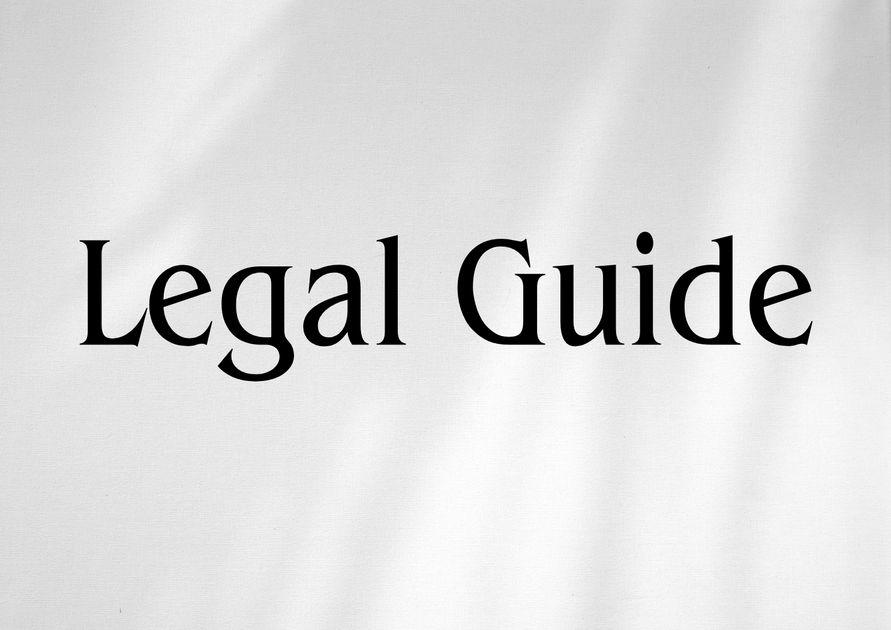Introduction: The Modern Landscape of Arbitral Awards & Enforcement in the UAE
In recent years, the United Arab Emirates (UAE) has positioned itself as a leading arbitration hub for local, regional, and international commercial disputes. With strategic legislative reforms—most notably UAE Federal Law No. 6 of 2018 on Arbitration and its amendments brought by the 2023 and 2025 regulatory updates—the country continues to reinforce its reputation for efficient, reliable, and business-friendly dispute resolution. Against this backdrop, understanding the nuances of arbitral awards and their enforcement is crucial for organizations, executives, and in-house counsel operating in or with the UAE.
This article provides a comprehensive, consultancy-standard overview of arbitral award enforcement in the UAE, analyzing the evolution of its legal framework, recent federal decree reforms, practical compliance strategies, and actionable insights for minimizing legal risks. With enforcement being the linchpin between arbitral process and commercial certainty, this resource is invaluable for ensuring business resilience and legal compliance in the dynamic landscape of UAE law.
As the UAE strengthens its commitment to international best practices and bolsters investor confidence, the enforcement of arbitral awards—particularly in light of the 2025 legal updates—remains a subject of critical importance for in-house counsel, HR managers, general counsels, and business leaders across all sectors.
Table of Contents
- Arbitral Framework Under UAE Law: Current Status & 2025 Updates
- Key Provisions of Federal Law No. 6 of 2018 and Recent Amendments
- Award Recognition and Enforcement Procedure in UAE Courts
- Comparisons: Old Rules Versus COVID-Era and 2025 Updates
- Practical Considerations & Case Studies
- Risks of Non-Compliance and Robust Compliance Strategies
- Conclusion & Forward-Looking Best Practices
Arbitral Framework Under UAE Law: Current Status & 2025 Updates
The Evolution of Arbitration in the UAE
Arbitration in the UAE has undergone a seismic transformation over the past decade. Prior to 2018, the UAE’s arbitration regime was guided by outdated provisions embedded within the UAE Civil Procedure Code (Federal Law No. 11 of 1992), resulting in confusion and procedural complexity. This changed with the promulgation of Federal Law No. 6 of 2018 on Arbitration (the UAE Arbitration Law), which, for the first time, consolidated and modernized the legal infrastructure governing all arbitration carried out in or connected with the UAE.
In 2023 and 2025, a series of amendments and cabinet resolutions have further streamlined procedures, shortened timelines, and clarified the grounds for nullity and enforcement—bringing UAE practice in line with the New York Convention (to which the UAE became a signatory in 2006) and reinforcing the nation’s commitment to international best practices.
- The 2025 updates, as published in the Federal Legal Gazette and documented on the UAE Ministry of Justice portal, focus on:
- Digitalization and e-filing of enforcement actions
- Explicit mandates for court cooperation with arbitral tribunals
- Enhanced timeframes for challenge and enforcement
- Expansion in scope for international award enforcement
These reforms are not merely administrative—they materially reduce the risk of delay and court interference, crucially supporting commercial parties’ reliance on arbitration as a fast and binding means of dispute resolution.
Key Provisions of Federal Law No. 6 of 2018 and Recent Amendments
Foundations of Arbitral Awards
The UAE Arbitration Law, supplemented by Cabinet Resolution No. 57 of 2018 (as amended), sets clear requirements for the issuance, content, and effect of arbitral awards. Notably:
- Article 41: Awards must be made in writing and signed by the arbitral tribunal, stating the reasons upon which the decision is based, unless the parties agree otherwise.
- Article 43: Awards are binding immediately upon notification to the parties and enforceable as a judicial judgment unless challenged on procedural or substantive grounds.
2025 Key Amendments
Recent updates focusing on enforcement include:
- Mandatory digital filing for recognition and enforcement applications
- Shortened period for courts to render decisions on enforcement (from 60 to 30 days)
- Clearer articulation of permissible challenge grounds, narrowing the ability to stall enforcement
- Explicit rules covering recognition of foreign-seated awards—streamlining procedures in line with the New York Convention obligations
Official references: Federal Law No. 6 of 2018 (as amended 2023 & 2025), Cabinet Resolution No. 57 of 2018, UAE Ministry of Justice Portal.
Award Recognition and Enforcement Procedure in UAE Courts
The Enforcement Lifecycle: Step-by-Step Guidance
For an arbitral award to have commercial effect in the UAE, it must be recognized and enforced by the relevant court (usually the Court of Appeal in the jurisdiction where the arbitration took place or where enforcement is sought). The process involves several clearly defined stages:
- Submission of Enforcement Petition: The party seeking enforcement must submit a petition with the following attachments:
- Original or certified copy of the arbitral award
- Certified copy of the arbitration agreement
- Evidence of notification to the other party
- Official Arabic translation (if award is not in Arabic)
- Judicial Scrutiny: The Court checks for formal legal compliance, ensuring there are no grounds for nullity (see table below).
- Objection/Challenge Window: The party against whom the award is invoked has a shortened window (15 days, per the 2025 update) to file for nullity on permissible grounds only.
- Enforcement Order: Absent a valid objection, the Court issues an enforcement order, granting the award the force of a domestic judgment.
- Execution: The order can be executed via the UAE’s robust system for judicial enforcement, utilizing the Ministry of Justice’s digital platforms.
Visualization Recommendation
Suggest placing a simple process flow diagram outlining the 5-stage lifecycle of award enforcement, from petition to execution, highlighting the key timelines and documentation requirements.
Grounds for Refusing Enforcement
| Ground | Basis in Law | Summary |
|---|---|---|
| Lack of Arbitration Agreement Validity | Article 54(2) | If the underlying arbitration agreement is void, annulled, or expired |
| Violation of Due Process | Article 53 | If a party was not given a proper opportunity to present their case |
| Arbitrability of Dispute | Article 4 | Subject matter is not capable of settlement by arbitration under UAE law |
| Contradiction of UAE Public Order/Morals | Article 53 | If enforcement would violate public policy or morality |
| Lack of Award Notification | Article 44 | If the award was not properly communicated to the parties |
However, under the 2025 reforms, the grounds for objection are more narrowly defined, and frivolous challenges are strongly discouraged by the imposition of cost orders and expedited hearings.
Comparisons: Old Rules Versus COVID-Era and 2025 Updates
Evolution Table: Old, COVID-Era, and New (2025) Rules
| Aspect | Pre-2018 System | 2018 Law (Pre-Pandemic) | 2023 & 2025 Updates |
|---|---|---|---|
| Applicable Law | Civil Procedure Code (Federal Law No. 11/1992) |
Arbitration Law (Federal Law No. 6/2018) |
Amended Arbitration Law, New Cabinet Resolutions |
| Challenging Awards | Multiple grounds, broad judicial discretion | Restrictive list of grounds (Article 53) |
Even narrower grounds for challenge; cost orders for frivolous claims |
| Enforcement Timeframes | Several months to over a year | 60 days (on paper) | 30 days (mandated); digital procedures decrease practical delays |
| Recognition of Foreign Awards | Unpredictable, case-by-case | New York Convention-based, but inconsistently applied | Mandatory NY Convention standards; increased enforceability |
| Digitalization/E-filing | None | Paper-based, limited digital | Mandatory e-filing via Ministry of Justice systems |
Consultancy Insight:
The overall trend is clear—the UAE courts’ role is transitionally moving from interventionist to facilitatory, which is better for business certainty and predictability, especially for cross-border transactions.
Practical Considerations & Case Studies
Case Study 1: Enforcing a Foreign-Seated Award in the UAE
Background: A European construction contractor obtained an ICC award in Paris against a Dubai-based developer. The developer refused voluntary payment, necessitating enforcement in the UAE.
- Process: The contractor files the certified award, Arabic translation, and evidence of notification with the Dubai Court of Appeal (Jurisdiction per Article 55 of the Federal Arbitration Law and Cabinet Resolution 57/2018).
- Result (2025 experience): The Dubai Court scrutinizes only the formal grounds—validity, notification, public order. Developer files a challenge arguing due process violation in the Paris proceedings, but the court, following the 2025 reforms, restricts consideration to manifest breaches only. The court grants enforcement within 30 days, and the contractor executes the award using the digital portal for asset seizure.
Case Study 2: Challenging a Domestic Award: Frivolous Objections Discouraged
Background: An SME loses a domestic arbitration over a business partnership. In previous years, it might have attempted several procedural challenges in court to delay enforcement.
- Process: Under the 2025 updates, the losing party files a challenge, but courts, leveraging new powers against frivolous litigation, swiftly dismiss the challenge and impose costs on the losing party for time-wasting. The award is enforced swiftly, signaling a new era of commercial certainty.
Hypothetical: Risk for HR/Employment Contracts with Multi-Tiered Dispute Clauses
Scenario: An employer incorporates a multi-tiered dispute clause (negotiation, mediation, then arbitration) in executive employment contracts. A US national employee wins an arbitration seated in Abu Dhabi but faces procedural issues in notification.
- Analysis: Under the stricter 2025 enforcement rules, failure to strictly adhere to notification requirements can jeopardize enforcement, emphasizing the need for precise drafting and robust administrative processes for in-house counsel and HR teams.
Practical Consultancy Checklist
Recommend including a downloadable compliance checklist for organizations, outlining mandatory documents and timelines for each stage of the award enforcement process—for example, a table listing key documents (award, notice, translation, agreement) and deadlines (10 days, 15 days, 30 days).
Risks of Non-Compliance and Robust Compliance Strategies
Risks of Non-Compliance
- Enforcement Delays: If documentation is defective or procedural rules are ignored, courts will return or reject the enforcement petition, causing costly delays.
- Exposure to Adverse Cost Orders: The 2025 update empowers courts to impose costs on parties filing baseless challenges, exposing businesses to financial liability and reputational risks.
- Potential for Nullification: Serious procedural lapses—such as improper notification or lack of a valid arbitration agreement—could lead to outright nullification of the award.
- Asset Recovery Failure: Without proper compliance, a winning party may be unable to utilize the full scope of asset enforcement and recovery mechanisms in the UAE.
Proactive Compliance Strategies
- Audit Arbitration Clauses: Ensure all commercial contracts feature enforceable and compliant arbitration language, referencing the UAE Arbitration Law and specifying details such as seat, language, and notification method.
- Maintain Document Rigor: Keep certified originals, official translations, and proof of notifications on record for all arbitrations involving UAE counterparties or assets.
- Train Legal/HR Staff: Hold periodic compliance workshops educating legal, HR, and risk management teams on updates to enforcement processes and documentation checklists.
- Utilize Digital Platforms: Leverage the Ministry of Justice’s enforcement portals for faster filing and tracking; integrate digital workflows into contract management systems.
- Engage Local Counsel: Complex enforcement often benefits from engagement with experienced UAE legal counsel well-versed in the latest Federal Law requirements and court practices.
Conclusion & Forward-Looking Best Practices
The UAE’s evolving legal framework for arbitral award enforcement—culminating in the 2025 updates—demonstrates a robust commitment to international investor confidence, legal certainty, and business efficiency. By narrowing challenge grounds, digitalizing procedures, and aligning with global standards, the UAE provides an increasingly attractive forum for resolving commercial and employment disputes via arbitration.
For organizations, the imperative is clear: proactively adapt your internal policies, audit contractual frameworks, and leverage digital enforcement tools. Stay informed on the latest Federal Law changes as published on the UAE Ministry of Justice, UAE Government Portal, and the Federal Legal Gazette. Regular legal review of arbitration practices ensures continuous compliance and maximal commercial protection.
Ultimately, those who engage thoughtfully with the new enforcement environment will enjoy swifter, more reliable dispute resolution—an essential competitive advantage in today’s UAE business climate.
Best Practices Checklist for UAE Businesses
- Update standard arbitration clauses to mirror 2025 legal requirements
- Institute annual compliance reviews for contractual dispute-resolution language
- Digitally archive all relevant arbitration and enforcement documentation
- Assign in-house or retainer counsel for real-time legal monitoring
- Educate executives and HR teams about risks of non-compliance and new cost-shifting provisions
For further tailored guidance on compliance with UAE arbitral award enforcement and dispute resolution, contact our legal consultants for an in-depth advisory session.



